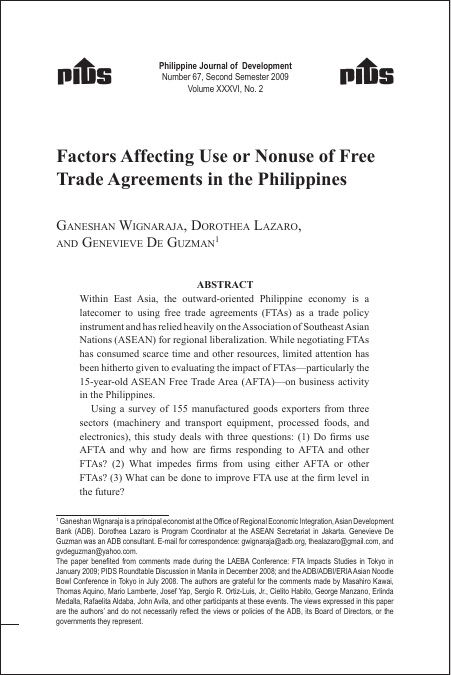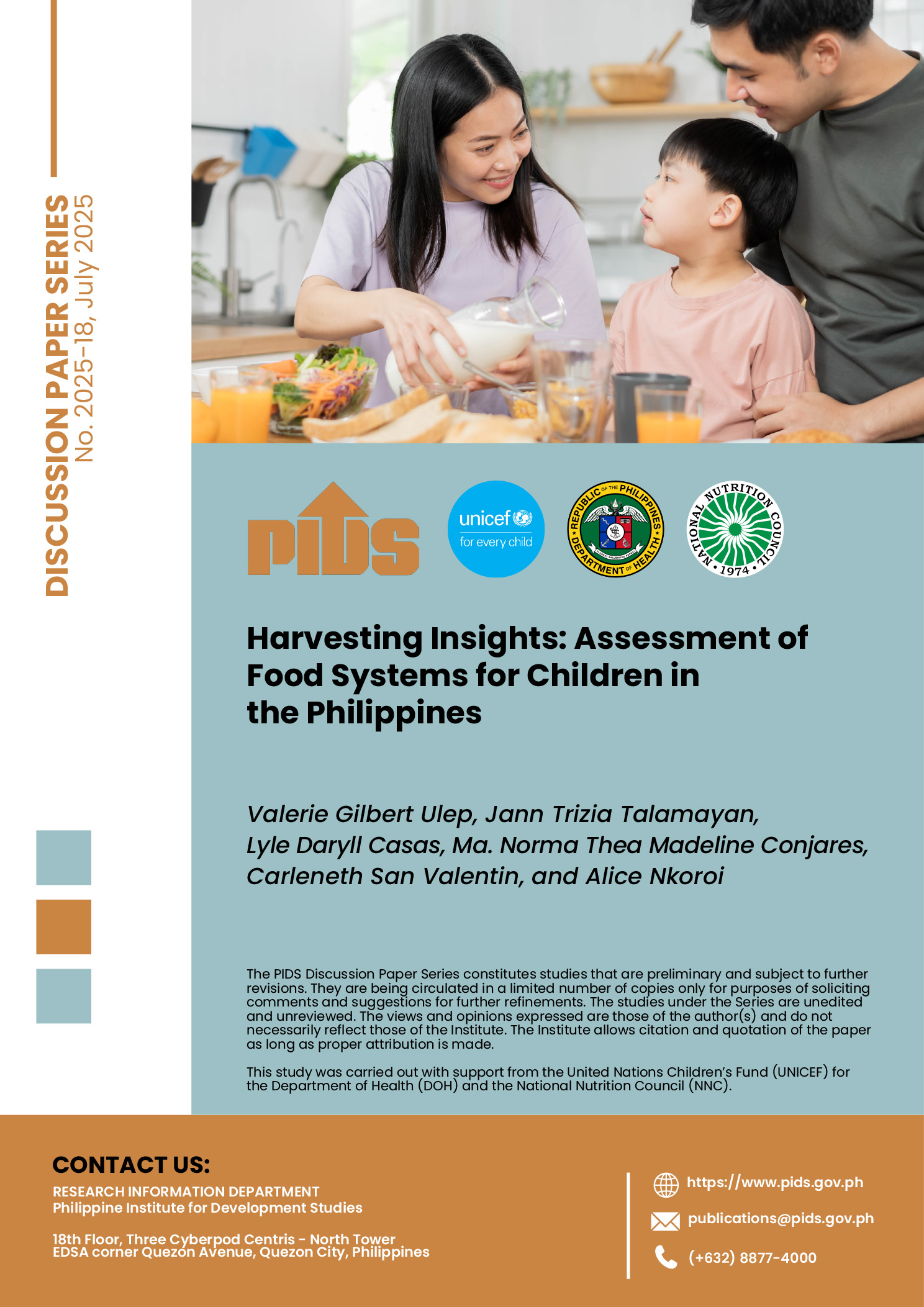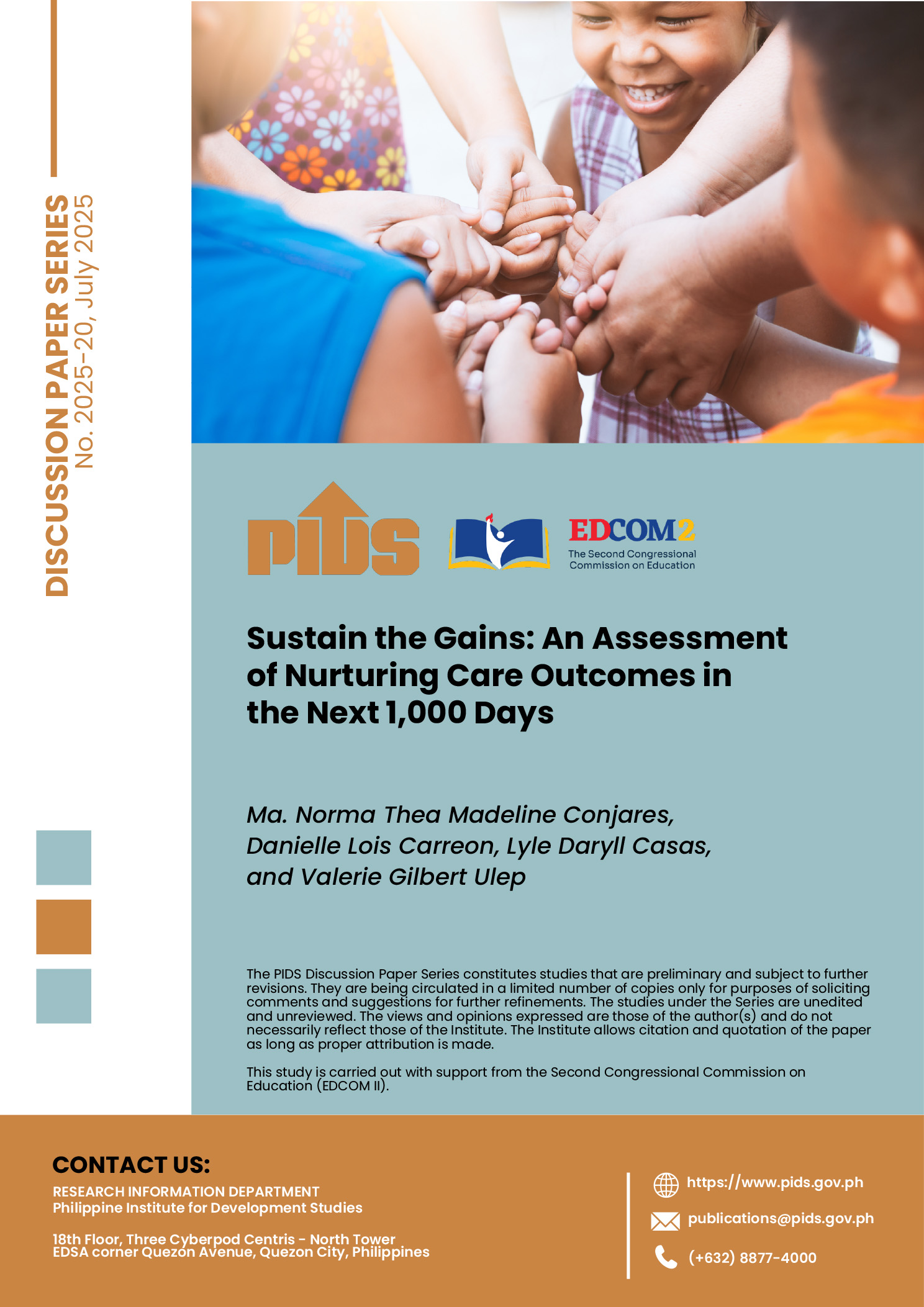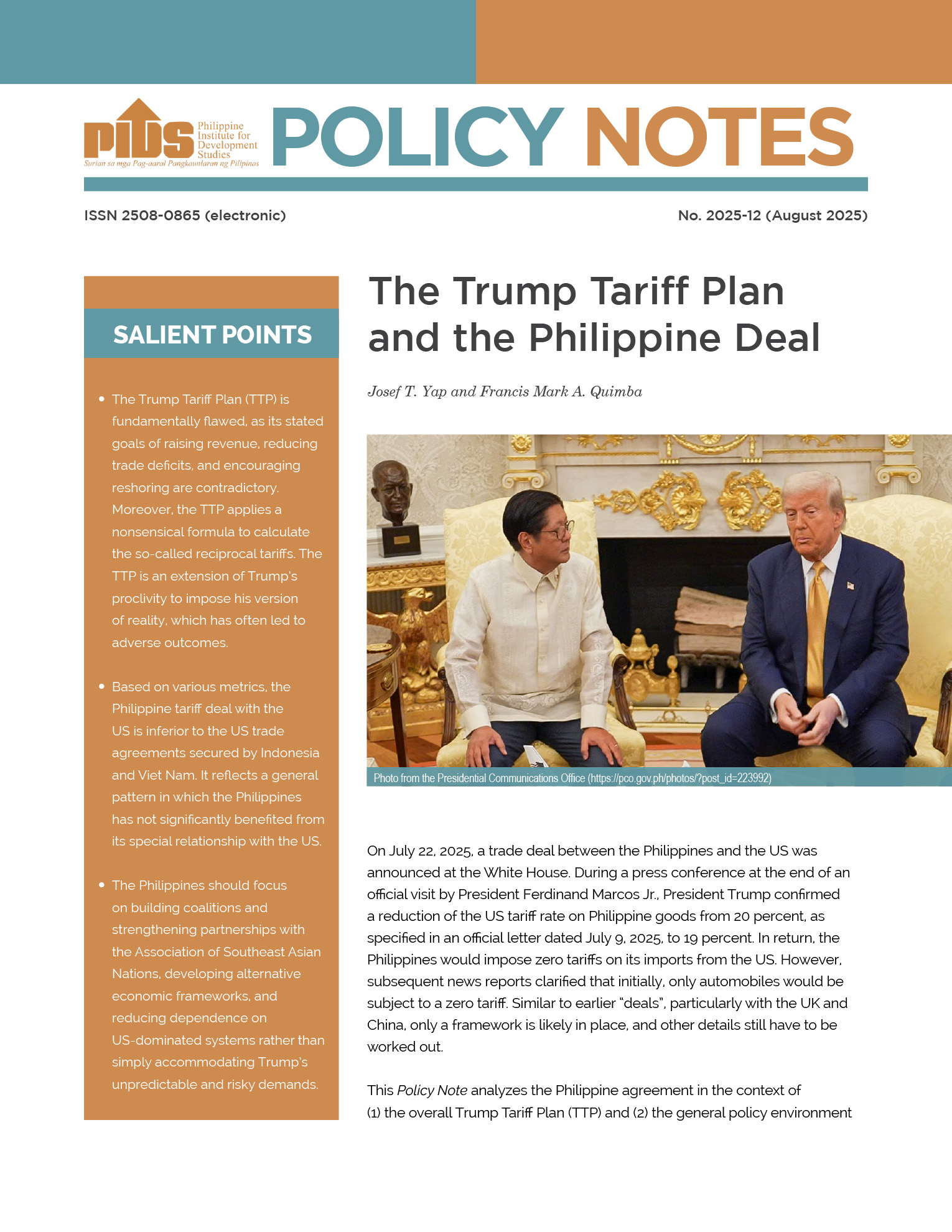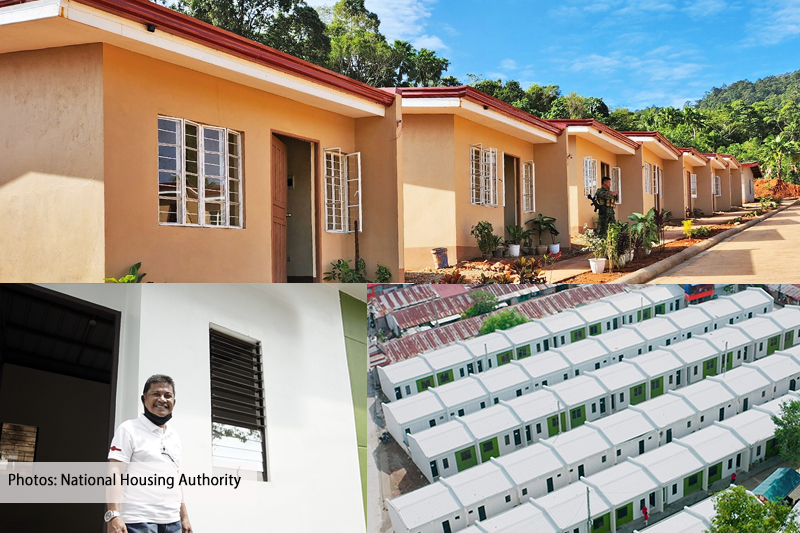Within East Asia, the outward-oriented Philippine economy is a latecomer to using free trade agreements (FTAs) as a trade policy instrument and has relied heavily on the Association of Southeast Asian Nations (ASEAN) for regional liberalization. While negotiating FTAs has consumed scarce time and other resources, limited attention has been hitherto given to evaluating the impact of FTAs--particularly the 15-year-old ASEAN Free Trade Area (AFTA)--on business activity in the Philippines.Using a survey of 155 manufactured goods exporters from three sectors (machinery and transport equipment, processed foods, and electronics), this study deals with three questions: (1) Do firms use AFTA and why and how are firms responding to AFTA and other FTAs? (2) What impedes firms from using either AFTA or other FTAs? (3) What can be done to improve FTA use at the firm level in the future?The study finds that utilization of AFTA is higher than expected from existing studies and is set to double in the future. A lack of information has been identified as the biggest barrier to FTA use. Other impediments include the availability of export-processing zone incentive schemes, low most-favored-nation rates, delays in origin administration, rent-seeking behavior, and nontariff measures in partner country markets. The paper concludes by making the case for better mainstreaming of FTAs into Philippine national trade policy, effectively encouraging the use of FTAs, and putting in place support mechanisms to Philippine firms.

